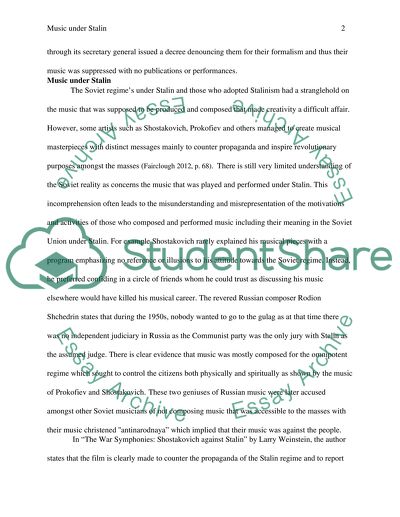Cite this document
(“Music under Stalin Essay Example | Topics and Well Written Essays - 1000 words”, n.d.)
Music under Stalin Essay Example | Topics and Well Written Essays - 1000 words. Retrieved from https://studentshare.org/music/1496214-music-under-stalin
Music under Stalin Essay Example | Topics and Well Written Essays - 1000 words. Retrieved from https://studentshare.org/music/1496214-music-under-stalin
(Music under Stalin Essay Example | Topics and Well Written Essays - 1000 Words)
Music under Stalin Essay Example | Topics and Well Written Essays - 1000 Words. https://studentshare.org/music/1496214-music-under-stalin.
Music under Stalin Essay Example | Topics and Well Written Essays - 1000 Words. https://studentshare.org/music/1496214-music-under-stalin.
“Music under Stalin Essay Example | Topics and Well Written Essays - 1000 Words”, n.d. https://studentshare.org/music/1496214-music-under-stalin.


